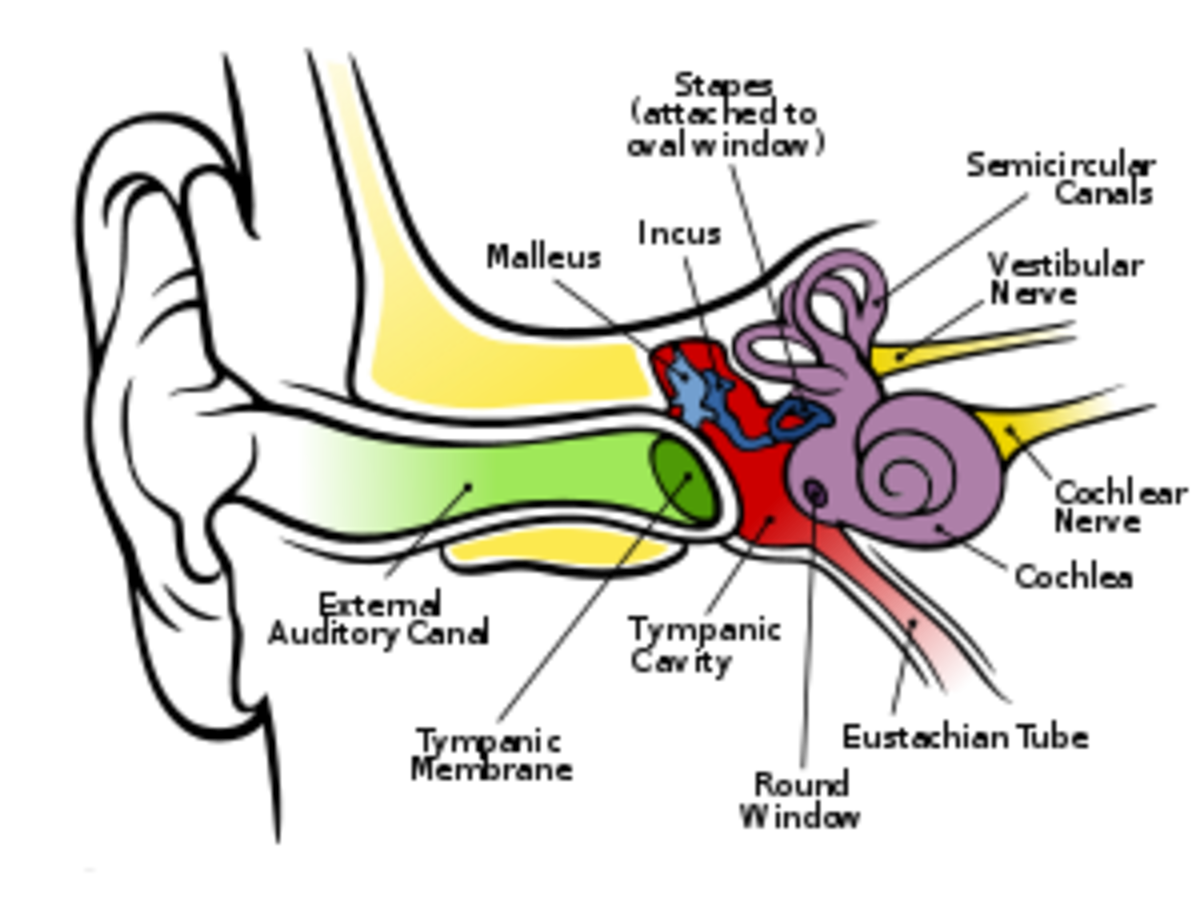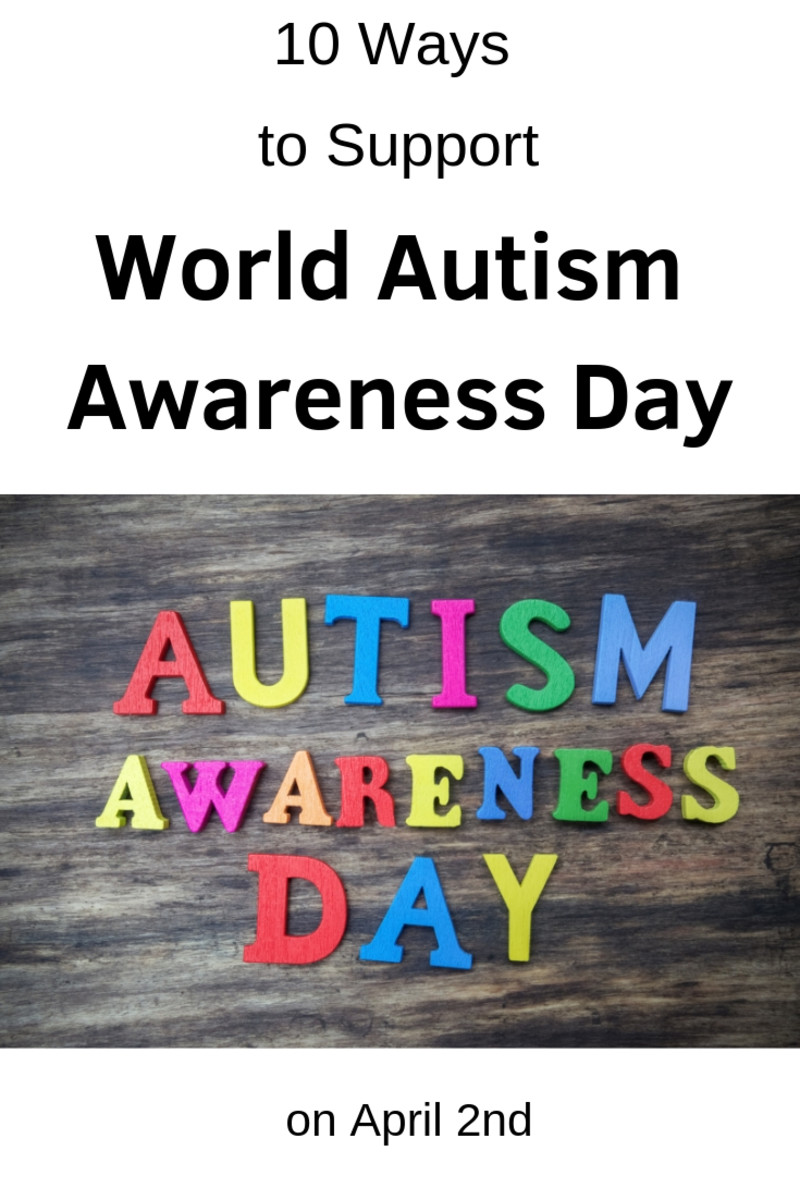- HubPages»
- Health»
- Diseases, Disorders & Conditions»
- Autism & Asperger's Syndrome
Complementary and Alternative Therapies for Autism
A diverse range of complementary and alternative therapies exist all over the world and these are becoming more and more assessable and well known by the general public. Although these therapies may not all be generally excepted as being effective or have undergone the same trials and research as some conventional medicine, over and over again they prove to help people, in some cases where conventional medicine has failed.
Although the terms complementary and alternative therapy are sometimes used interchangeably there are clear differences between the two and which therapies each term actually covers. Complementary therapies are those that are generally used alongside conventional medical treatments. This practice is also referred to as integrative medicine by some.
Alternative therapies are used exclusively instead of the commonly used conventional treatments.
As these therapies become more widely known and used by more and more people their effectiveness can be better recorded and understood meaning that they can be adapted and used to help more people in future.

It is easy to understand why parents of children with lifelong disabilities and special needs such as autism would seek out any treatments that may help their children to have a better quality of life. This is even more so when conventional medicine fails to provide answers or lead to improvements.
The treatments and other resources that may be available can vary due to the area that the family live in and even what doctors they see. Being able to research and chose interventions for their child can help parents feel more involved in their the care that their child is receiving and help them to feel that they are actively trying to help them. It is very important to research claims made and consider whether the particular therapy will be appropriate for the child in question. Autism can be a greatly variable condition and so it can be the case that what works well for one child, will not be so successful for another. This can apply even for siblings and other family members. Plenty of time should be taken to find out what will happen at any type of therapy session to ensure that you are well informed and can make better judgements about the appropriateness and also be able to explain the therapy and procedures to the child, if appropriate so that they know what to expect and why it is happening.

A Selection of Therapies
Ayurveda – This holistic system of medicine focuses on achieving and maintaining a balance between the mind, body and spirit rather than on fixing symptoms. Diet and cleansing the body of toxins are important parts of Ayurveda medicine and treatments can include fasting, special diets, massage, meditation and yoga.
Homeopathy – Homeopathy was developed at the end of the 18th century and centres around the Law of similars. This theory states that if a substance causes a symptom or illness then it can be used in tiny amounts to stimulate the body into healing that symptom even when caused by something else. Remedies are selected based on each patient’s symptoms and also emotional state, general constitution and lifestyle. Each remedy is greatly diluted and can be derived from many sources such as herbs, minerals, animals and flowers.
Animal Assisted Therapy – Interacting with animals is believed by many people to reduce stress, promote positivity and a sense of well-being as well as increasing communication and motivation. Many children enjoy interacting with animals and may feel less pressure from being around them. Strong bonds can form between a child and animal and being around and caring for animals can help with many additional skills such as fine motor skills and encouraging a child to be more active or social. Caring for an animal can also raise self-esteem and self-worth.

Aromatherapy – Aromatherapy uses oils extracted from plants to improve health and well-being. These oils can be used in a variety of ways such as in specially designed oil burners or candles, added to baths and in massage. Aromatherapy essential oils can be expensive depending on the variety and synthetic fragrance oils lack the therapeutic properties and only mimic the scent. Aromatherapy oils and accessories can be purchased fairly easily though care needs to be taken with some oils as not all are suitable for general use.
Music therapy – Music is believed to have therapeutic benefits due to it being non-verbal and non-threatening. Lyrics can help familiarize a child with language and speech as well as being used to convey messages, instructions and even social stories to children in a pleasant, inform and non-intrusive way. Music is well known to have an effect on people’s emotions and motivation, can be listened to and created in so many different ways and is loved in one form or another by almost everybody which gives it a lot of scope as a therapy tool.
Sensory integration therapy – Many children with autism can have a variety of sensory issues. They may be over or under sensitive to food textures, clothing material, motion/movement, pain, touch, colours, light and sounds for example. Reducing or increase sensory input can help improve concentration and provide a calming environment. For example having a small item to turn over in their hands may help a nervous child concentrate on a teacher talking for a longer period or enable them to sit still for a longer period of time. To an over sensitive child reducing bright lights, bright colours and unnecessary noise can have a similarly beneficial effect.
Sign language – For children with communication issues sign language can be of huge benefit and basic signs can be taught to even very young children. Even for children who speak well or moderately well, sign language can provide an addition communication tool and can be extremely helpful in times of high stress or anxiety where they feel less able to talk. A lack of a way to communicate can cause immense frustration and add to a child’s anxiety and signing can open up a whole new world of possibilities and help inform adults and other children of wants and needs. Being able to ask for what they want or say what they think or feel can help children feel less powerless and more involved in what happens around them.
Social stories – Social stories are used to help people with autism gain a better understanding of social situations and the feelings, behaviours, attitudes and expectations of others. Each story can be developed to fit the needs of the person who will use them and can be changed as needed. A social story is written in the first person and present tense and sets out clear and simple descriptions of the situation and any related social cues and behaviours. Stories may be accompanied by pictures or photos or even recorded on video.
Reiki – Reiki is a therapeutic touch therapy that can be used for a variety of purposes. Reiki practitioners believe that any imbalance in a person’s ki (life force energy) can disrupt the body’s ability to function properly. During treatment the practitioner channels their own ki energy into the patient to help redress any imbalance and enable healing. Reiki healing generally requires that the person sits or lays still throughout but is also believed by many to still be effective when carried out remotely.
What Happens in a Reiki Treatment?
© 2013 Claire








